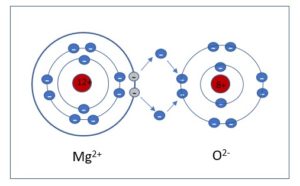MAGNESIUM – Many types for many uses
It is estimated that about 60% of adults in the United States are nutritionally deficient in Magnesium*. Nielsen, F. (2010)

Many of us know that Magnesium is important, as it works with ATP (adenosine triphosphate) to provide your body with energy. It also helps to:
- Relieve constipation
- Ease muscle aches
- Promote calm
- Prevent headaches
- Balance electrolytes
- Promote sleep
- Build and maintain healthy bones
- Support nerve functions
- Ensure normal heart rhythms
- Generate muscle contractions
There are different types that impact specific aspects of our physiological systems. It is a supplement that I take every night and strongly suggest adding if nervousness, anxiety, and in cases when overthinking is a pattern.
Here is a summary of the various kinds available and what they are specifically used for:
Magnesium chloride – MgCl2
Most popular, extracted from brine or saltwater, organically encourages sleep, digestion, bone health, and a sense of mental and physical calm. May cause diarrhea in large amounts.

Magnesium sulfate – MgSO4
Also known as Epsom Salts and used extensively in bath products, great for sore muscles. It’s a laxative, when used internally.

Magnesium citrate – C6H6MgO7
Derived from citric acid, very bioavailable, often used to support digestion, good to alleviate constipation and acid indigestion. May contribute to dehydration as magnesium citrate draws H20 to the digestive system resulting in defecation.
Magnesium oxide – MgO
The large oxygen molecule reduces it’s absorption. It is contained in Milk of Magnesia and supports digestion, usually lower in cost.

Magnesium glycinate – C4H8MgN2O4
Supports muscle relaxation, the amino acid glycine is known to calm the mind and body. Ranks the best in bioavailability, not so much as a laxative.
Magnesium orotate – C10H6MgN4O8
Supports stamina and endurance for athletes, and also for general heart health. Usually more expensive, as it includes orotic acid (formerly known as B13).

Magnesium L-threonate – C8H14MgO10
Specifically supports cognative function, as well as short term memory loss caused by chronic pain. Some evidence that it may prevent dementia.
These statements have not been approved by the Food and Drug Administration.
The information provided is not intended to diagnose, treat, cure or prevent any medical condition. Consult with a nutritional or medical professional before making significant changes in your diet or supplementation particularly when pharmaceuticals are also taken.
References:
Nielsen, F. (2010). Magnesium, inflammation, and obesity in chronic disease. Nutrition Reviews, 68(6), 333-340. http://dx.doi.org/10.1111/j.1753-4887.2010.00293.x
Steelsmith, ND, LAc, L. (2018). A Guide to Different Types of Magnesium. Retrieved from https://www.vitacost.com/blog/vitamins-supplements/supplements/types-of-magnesium.html